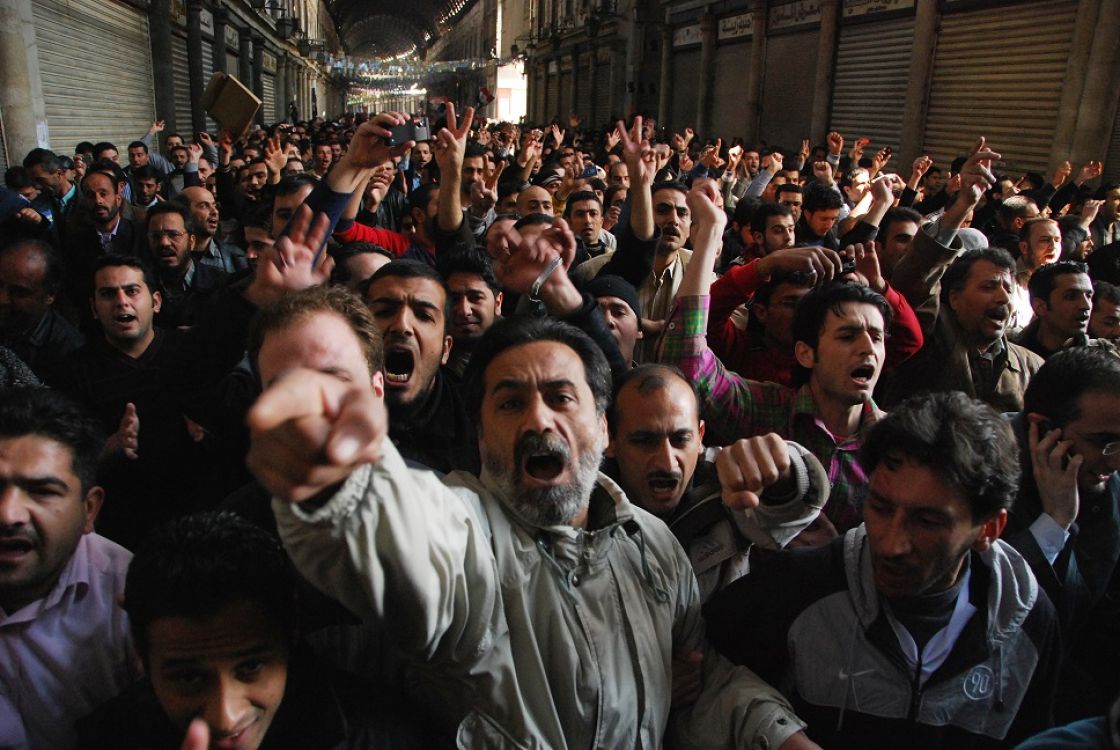- Editorials
- Posted
10 Years Later… the Popular Movement Will Return
Ten years have passed since the popular movement took off in Syria, with all the hopes and bitterness that those years held within their folds, not to mention the suppression, violence, killings, arrests, displacement, cold, hunger, terrorism, and foreign interventions.
While the extremists are preoccupied with dealing with the anniversary as a media occasion to replay their same destructive broken record about “military victory” and “toppling” and the same old talk about a “conspiracy” and a “revolution”; it would be more appropriate to recall the main deductions, real and objective, about which Kassioun has always said since before 2011 (and after as well), which the catastrophic facts have proven true, so these deductions will be a basis on which to build:
First: The popular movement in Syria took off primarily for domestic reasons, that can be summarized by a plundering liberal socioeconomic structure that impoverished and marginalized the people. Additionally, this structure is dominated by a security character and an almost non-existent level of political freedoms, which severed the link between the people and politics and between them and the state apparatus, and accumulated the pains until they exploded all at once.
Second: It has become clear that one of the most dangerous forms of “conspiracy” is not only foreign interference and terrorism, but also the dominant corrupt individuals within the state apparatus who have repeatedly boasted of the conspiracy not to confront it, but to cover up the oppression of the people and the policies of plundering and to evade making any concessions to the Syrian people. This is what Kassioun has repeatedly said since 2005, when it described economic liberalism as a Trojan horse through which the external enemy would enter, and that the great corruption is the most important point of reference for that enemy, something that reached during the crisis turning into an exposed and blatant socioeconomic terrorism against the overwhelming majority of the Syrian people.
Third: Those within both sides who have worked against dialogue and against a political solution, were forced to return to it, but after what? After tens and hundreds of thousands of victims, after sufferings that cannot be summarized or enumerated, and even after placing the country under the dangers of partitioning. The past few years have proven that the extremists of both sides are falsely claiming that they agree to a political solution while they are still trying to completely destroy the other side. Indeed, today, openly or indirectly, they seek the partitioning and “are satisfied with the land and people under their control”.
Fourth: The sectarian propositions, and the narratives that adopted the option of violence, were a great service to the enemies of the radical change in the regime and the opposition. All those found their path through crushing the popular movement by vertically dividing Syrians according to imaginary dualities and drowning them in their own blood, as the people – loyalists and opponents – turned into a tool for the plundering elites’ battle among themselves, instead of being united on the basis of their socioeconomic, patriotic, and democratic interest against all those elites.
Fifth: The lies related to the use of weapons to protect people or to invoke external intervention to protect them, have proven by concrete lethal experience (and as we have said from the outset) that they only led to increasing multifold the number of victims, the sufferings, and delaying the change.
Sixth: If the popular movement has temporarily retreated due to arming, violence, repression, and foreign interferences, this does not mean at all that it has ended. Rather, it has passed the first stage in its development and is now in a state of alertness and stimulation until the time is right. The crises that made people take to the streets have not been resolved, but rather have become more complex, and the dominance of arms that is in all parts of Syria now will not have the supreme word when Syrians decide that the time to continue has come.
Seventh: The function of the political solution through UNSC Resolution 2254 is to enable the Syrian people to determine their own destiny, and this is the crux of the matter, which is enabling the Syrian popular movement to regroup because that is the primary tool to impose the Syrians’ right to self-determination.


